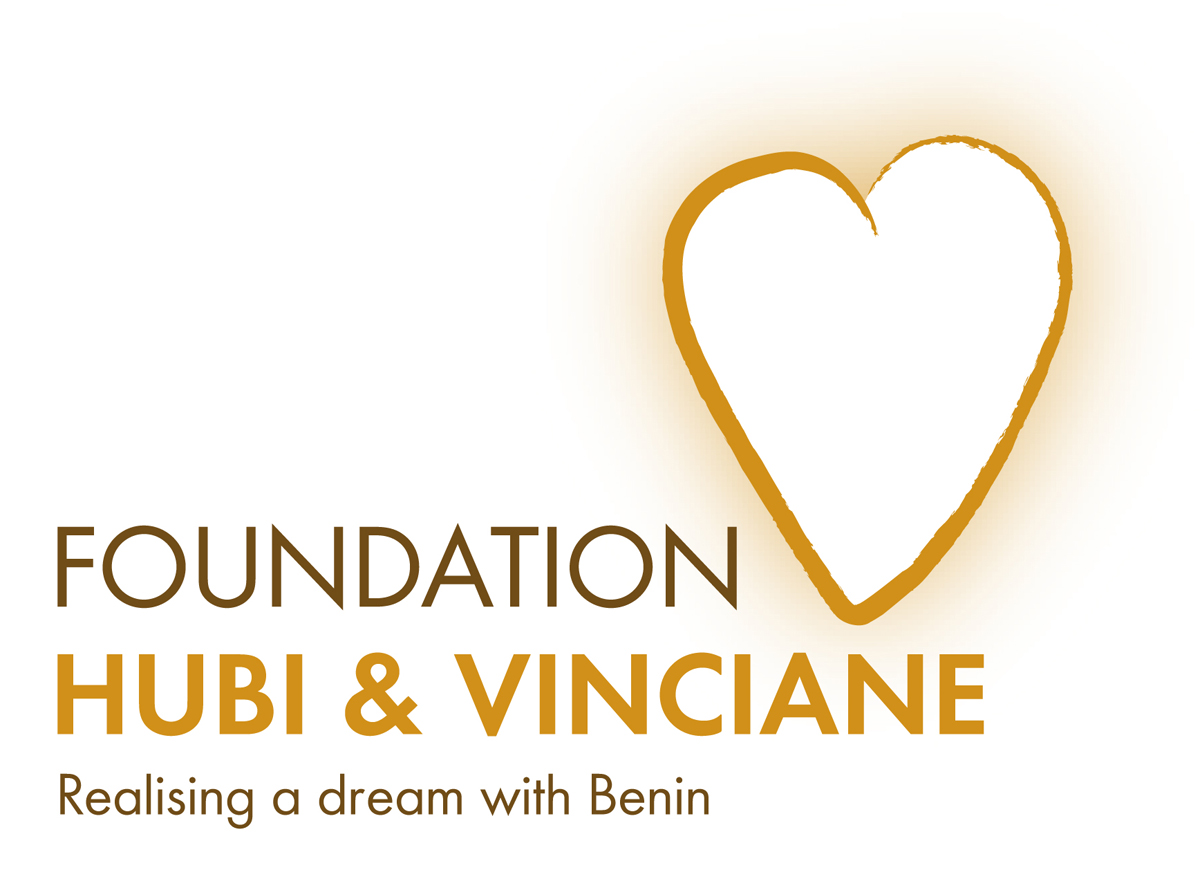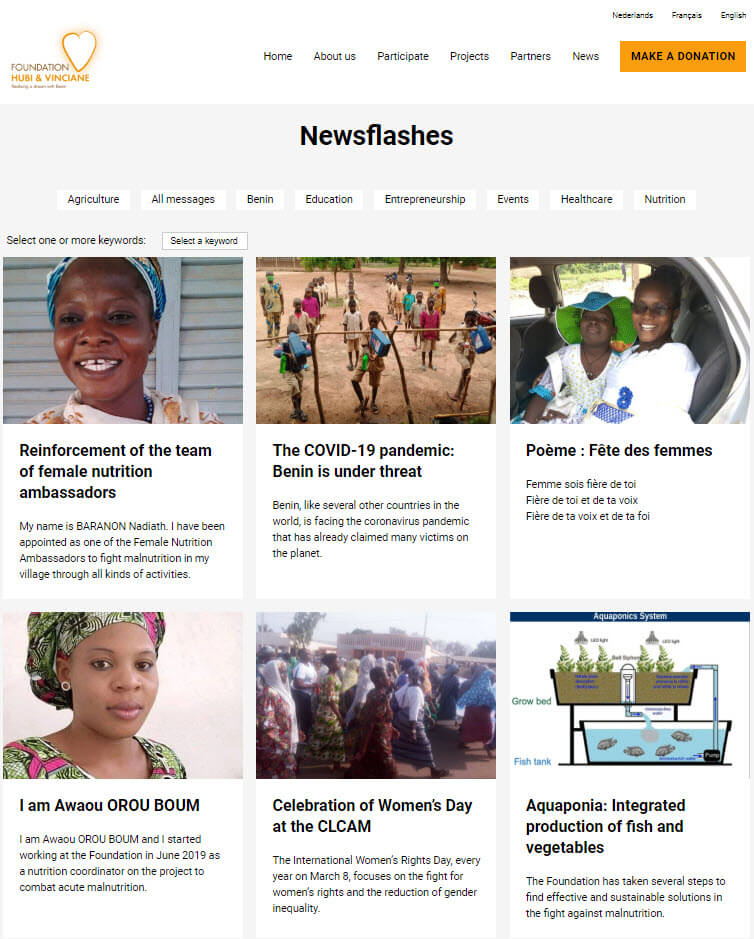On a journey of immersion with Hubi & Vinciane
From November 28 to December 6, we traveled to Benin with about 20 enthusiasts. There we visited the beautiful projects of the Foundation. We also met the local staff and celebrated locally because the Foundation has existed for exactly 40 years. I, Machteld Libert, was one of the enthusiasts. Herewith is my photo reportage.
Can I briefly write three experiences that have stayed with me most from the immersion trip with Hubi &V inciane in Benin? That’s the question from the editors of this newsletter.
Gladly, of course.

So do I start with my first confrontation with Black Africa? Benin, with its red dirt roads with masses of mopeds on them. Permanently honking their horns. Men, women, sometimes three on one moped and half a household on top. And then also a stacked fruit basket on a passenger’s head, who, oh yes, also carries a child on the back.
Or that first night without electricity and water? No, that is an afterthought.
If I really have to choose, I think of the hospital in Papané, where everything began 40 years ago. Where Hubi (Hubert) was the physician-director of the hospital. It is striking, the memorial stone with the photos of Hubi and Vinciane at the entrance to the hospital. But soon, a few meters away, a newborn baby is scrubbed and polished smooth.
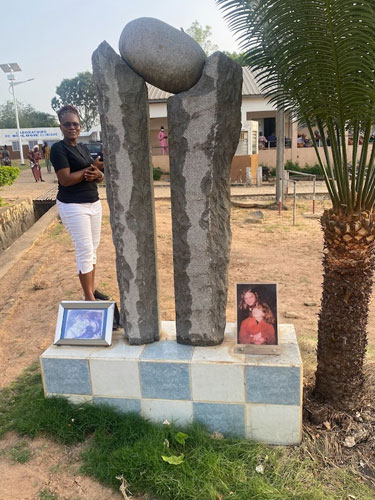
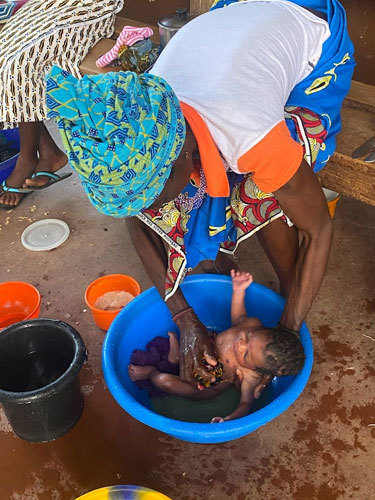
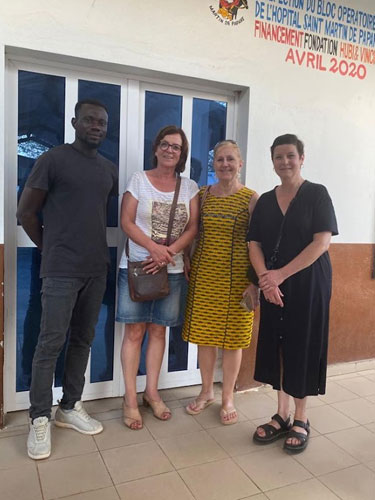
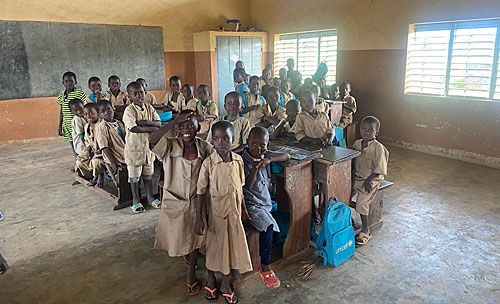
Then to the school in Tchaourou, where Vinciane taught science and math 40 years ago. I hope the children of that time were as happy with her presence as they were with our passage. We are more than welcome in their beige uniforms and the blue-worn Unicef backpacks on their backs. They feel, touch, grab hands, dance, laugh… But they also learn. Today the phrase “Je ne peux pas courir après une moto” is rammed into them. It must be, with all these mopeds here, crisscrossing each other.

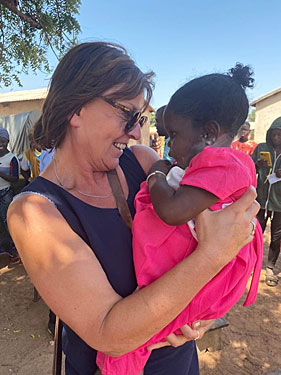
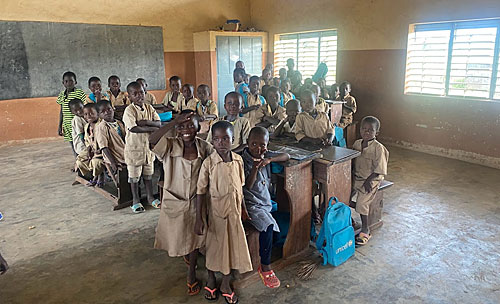
Or should I talk about the next day with Moussa, the Foundation’s agricultural expert from Benin? He visits the villages and teaches the inhabitants new crops that they sow together in a ‘jardin communautaire’, and how to maintain and harvest, including the correct ecological fertilization and irrigation. This way, they learn to eat healthier, besides the usual pates (porridge), which is filling but not nourishing. And then banana cultivation, how simple can it be, planting banana trees next to the showers and toilets, where it is moist.
But there is also the village far away in the brousse on a barely passable dirt road. Three-year-old Zouerath has been saved from malnutrition thanks to the shelter at H&V’s hospital. The girl in a beautifully festive pink dress doesn’t know what hit her, all that attention, that cuddling. Thanks to Constant, Hubi & Vinciane’s social worker, who regularly visits all those villages, he gets information from a few women about where things go wrong. Sometimes he can adjust on the spot, and sometimes, a child must be hospitalized.
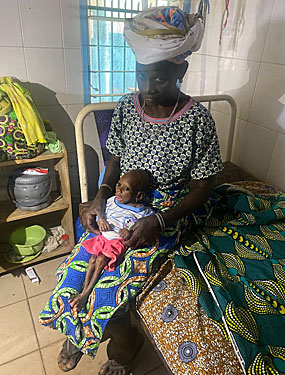
In Boko, another Hubi & Vinciane hospital, malnourished children can strengthen for four weeks, and their mothers are given information on healthy nutrition. There, we see a mother of a 3-month-old baby who wants to leave the hospital after a week and a half. The baby’s blood levels are still far from okay, but the mother wants to go home with her baby. After all, six other children are waiting for her at home.
Indeed, birth control must urgently become a topic here, but how can you teach it here in a country where religion is still so decisive.

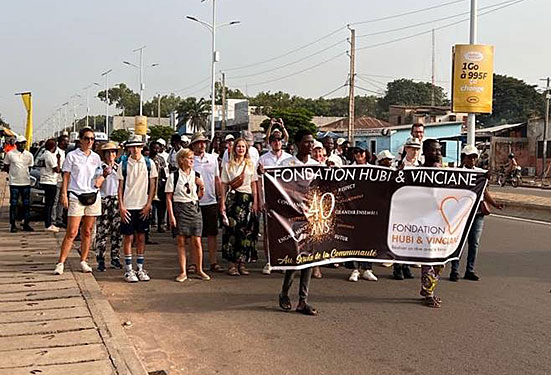
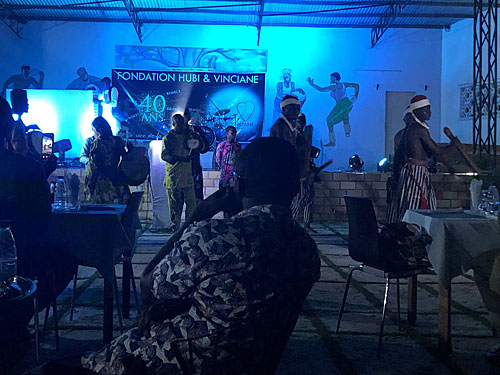
We also visit a shell of what should become the incubation center early next year. Where young Beniners will receive support to build their own business.
There were more than three impressions. Sorry about that. And then I haven’t mentioned the caravan going through Papane, celebrating 40 years of the Foundation, the party on Friday night where children from the neighborhood also came to dance along, the sudden rain that washed away part of the roadside markets, the big gap between rich and poor in Cotonou, where 200 meters from a better restaurant you see people surviving on garbage dumps.
Conclusion.
What incredible work is being done here by the Hubi & Vinciane Foundation? But how much work is left to do here?
Not the old school development aid of yesteryear, but development cooperation: passing on knowledge to the Beniners who will hopefully be able to do it themselves in x years. I believe in it. But before that happens, much input and care will be needed.
